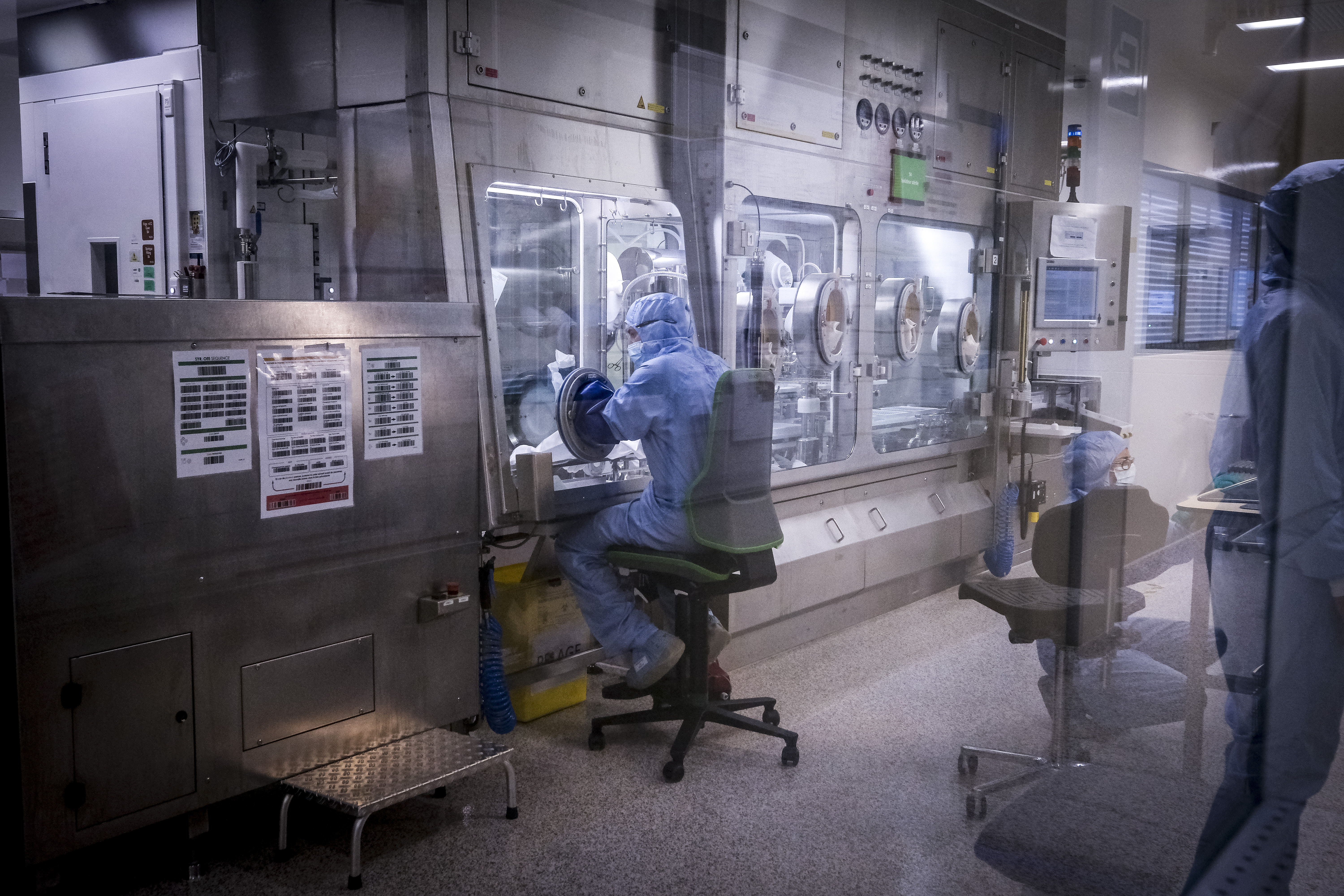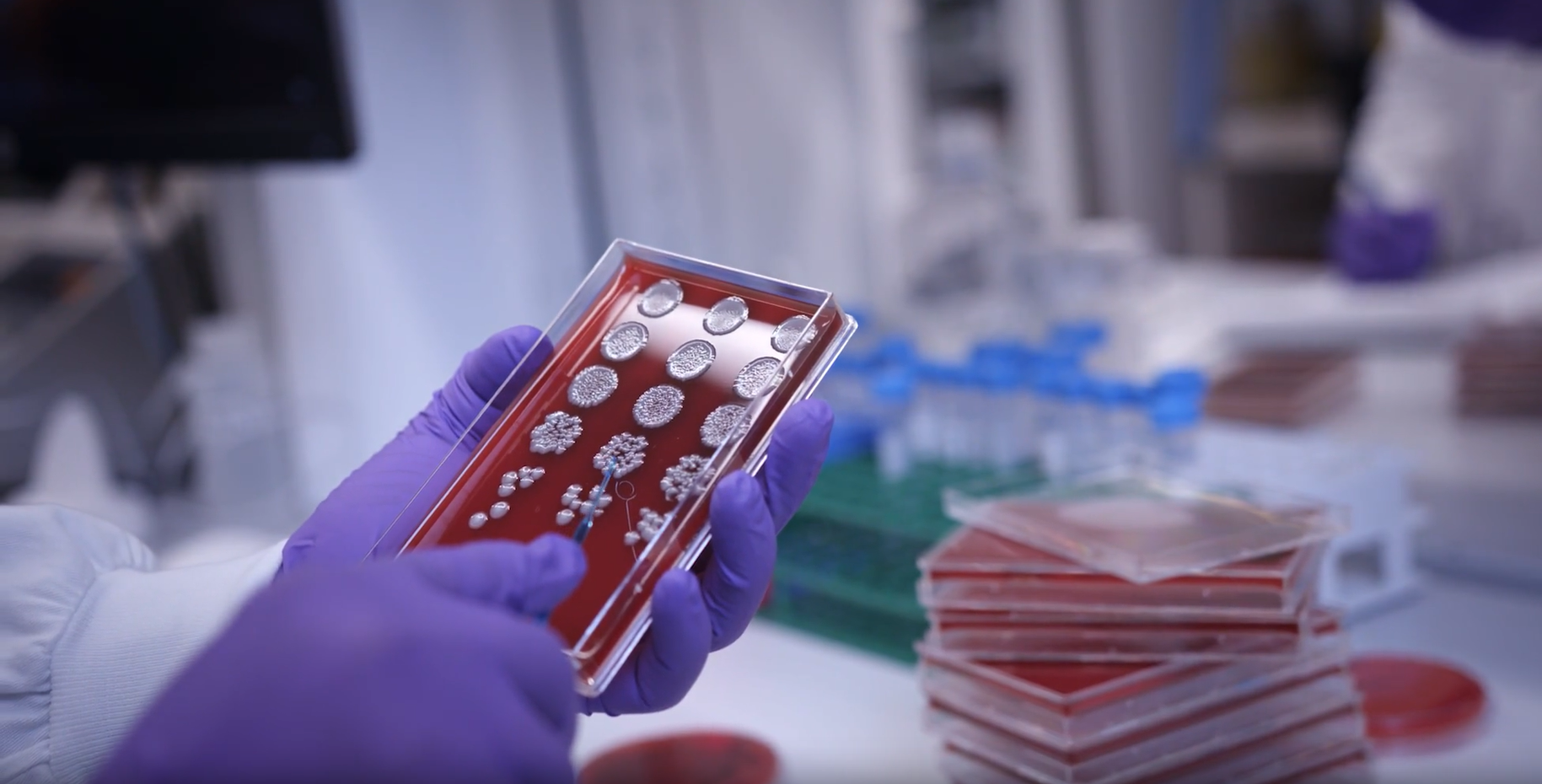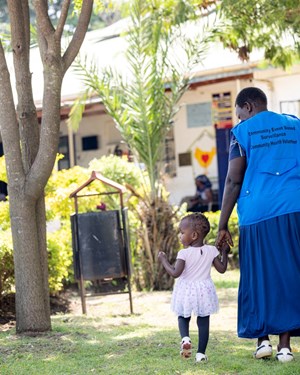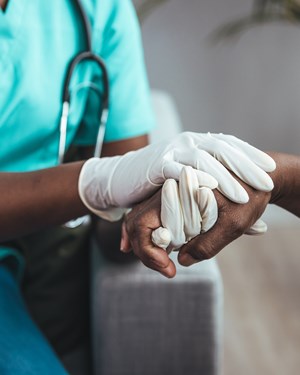In this Behind the Science series on the power of prevention, we explore what it means to get ahead of disease through prevention and earlier intervention to change the course of an illness. As bacteria evolve to outsmart antibiotics, proactive action will play a critical role in slowing the march of drug-resistant infections.
Antibiotics are the cornerstone of modern medicine, treating everyday as well as serious infections. They enable safe surgery and childbirth, and help protect patients being treated for other illnesses, like cancer. When they fail, the consequences can be devastating.
Vanessa Carter, founder of patient advocacy group The AMR Narrative, knows this only too well.
A car crash in 2004 left Vanessa, then aged 25, with injuries to her abdomen, back, neck, pelvis and face. She spent the next 10 years undergoing multiple facial reconstructions – and three years fighting antibiotic-resistant infections in her face that left her in despair.
It was then discovered that her facial prosthetic – and later her bone – was infected with MRSA, a so-called superbug. The prosthetic was removed and, after cycling through yet more operations and different courses of antibiotics, the infection finally cleared. It was then she decided to put a stop to further reconstructive surgery.
“I will look like this for the rest of my life because it was more frightening to live with the resistant infections than it was to live with the facial disfigurement,” Vanessa says.
Vanessa’s case is just one instance of a life dramatically changing course due to drug-resistant infections.
Bacteria naturally evolve to outsmart antibiotics, but overuse and misuse of antibiotics is accelerating what is known as antimicrobial resistance, or AMR. If left unchecked, more than 39 million people could die of antibiotic-resistant infections between now and 2050, according to new data published by the Global Research on Antimicrobial Resistance (GRAM) Project. That’s around one death every three minutes.
“We never think a car accident is going to happen to us, just in the same way that we never think antimicrobial resistance will happen to us,” Vanessa continues. “It could happen to anyone.
“AMR is not a silent pandemic. It's been here for a long time. We need to start acting on it.”

Stopping the fire before it starts
So far, action on AMR has largely focused on antibiotics – how to manufacture them responsibly, use them more judiciously, and develop new ones.
Such action is essential to protect the medicines that Professor John Rex, founder of AMR Solutions and Chief Medical Officer of biotech F2G, has dubbed the “fire extinguishers” of medicine.
“We don’t want to use them all the time, but we are happy to have them on the wall,” he says.
Attention is also being paid to actions that can be taken to sustain the effectiveness of antibiotics. Protecting the “fire extinguishers” of medicine starts with preventing the fires in the first place – by getting ahead of infections that can lead to antibiotic overuse and misuse.
“We need to stop using antibacterials as Band-Aids and get out ahead by doing the hard things of providing clean food, clean water and vaccination for both viral and bacterial infections,” says Prof Rex.
“Preventative aspects should all create a healthier population who overall have less need for antibiotics.”
It is estimated that in lower income countries, around 750,000 AMR-related deaths could be prevented each year through universal access to clean water and improved hygiene; better infection prevention in healthcare settings; and uptake of childhood vaccinations.
Dr Aruni Mulgirigama, Global Medical Lead for infectious diseases in the general medicines division at GSK, agrees that a more holistic approach is needed.
“It’s not just about antibiotic use, it’s about so much more than that,” says Dr Mulgirigama.
“It’s about diagnostics that could also inform stronger surveillance data that will guide appropriate antibiotic treatment.
“It’s also about education, including in the community setting, so that we all understand the importance of steps like taking the full course of antibiotics as advised by healthcare professionals to reduce the risk of developing AMR.”
The essential role of vaccines
There is also increasing awareness of the importance of vaccines in getting ahead of AMR.
For example, a new typhoid vaccine helped curb an outbreak of a dangerous drug-resistant strain among children in Pakistan. It’s estimated that universal coverage with pneumonia vaccination could avoid more than 11 million days of antibiotic use per year in children under five.
“With AMR, the roof is leaking, and we've been really busy mopping the water around the house,” says Francesco Berlando Scorza, Head of Global Health R&D for vaccines.
“If we really want to fix the roof, we need to think about preventive measures so that far fewer infections happen in the first place.”
Developing vaccines against these disease-causing organisms, known as pathogens, is hard, because it is difficult to get statistically relevant facts due to the small number of people who have the disease.
But the work is critical. New insights and technologies could help target pathogens most likely to develop resistance, enabling scientists to make effective vaccines more rapidly.
“In the vaccine space, we haven’t even scratched the surface of what we can do,” Berlando Scorza says.
Novel antibiotics
New antimicrobials, alongside vaccines, will form a vital part of the arsenal against the march of AMR. But no new class of antibiotics had been discovered since the 1980s.
The scientific and financial challenges of developing new antibiotics are steep. As new antimicrobials are held back to treat the toughest infections, antibiotic developers do not get an immediate return on their investment.
Companies have therefore folded, or exited the field, leaving only 27 experimental antibiotics in the pipeline against priority pathogens, and only 3,000 AMR researchers compared to 46,000 in cancer.
GSK remains one of the few large pharmaceutical companies still invested in antibiotic research and is developing potential assets that target some of the toughest to treat pathogens.
A particular focus of GSK’s research is on a development space that has been neglected for some time – patients who need oral antibiotics in the community.
Life-threatening infections often start in the community. A patient is at home, quickly goes downhill and ends up in hospital needing broad-spectrum antibiotics – which can contribute to rising resistance because they target many organisms rather than a narrow selection.
Being able to treat patients appropriately in the community prevents this escalation.
“What we are trying to do is transform patient management of infectious diseases,” says Dr Mulgirigama.
“If we can take a more holistic view from a patient perspective and get that right, then you get benefits at a population level as well.”
Read more about prevention
‘This could be a golden moment’: Is prevention the ‘medicine’ we need to end the HIV epidemic?
‘Patients can breathe easier today’: Scientific advances in asthma and COPD care could prevent irreversible lung damage
In the face of climate change, vaccines play a crucial but underestimated role
A preventative patient-centred approach is key to transforming respiratory care and relieving struggling services
'Prevention is the best medicine to stop disease before it starts'
‘Adult vaccination plays an essential role in healthy ageing, so let’s prioritise prevention and make it a new standard of care’
Collective responsibility
After years of patchy action on AMR, policymakers are now more alert to the risk of rising resistance – and the need to rebuild the ecosystem for developing antibiotics and other interventions.
Stakeholder partnerships like AMR Action Fund, and Boston-based non-profit CARB-X, exist to ease the pressure on scientists developing antibiotics through funding. More recently, the UK has introduced a subscription model where antibiotic developers receive a set sum each year regardless of the volume of antibiotic used.
In May 2024, it was announced that GSK will become the first founding partner of the Fleming Initiative, an innovative and collaborative approach led by Imperial College Healthcare NHS Trust and Imperial College London to tackle antimicrobial resistance (AMR) around the world.
And the World Health Organisation (WHO) has developed a new framework for capturing the broad benefits of AMR-relevant vaccines, making it easier to value the role of vaccines in AMR – and incentivise their development.
Globally, more concerted action, investment and partnership is needed to reduce the likelihood of people suffering from AMR-related infections at ever-increasing levels.
“There are 1,000 other things that policymakers can worry about in any given day,” Prof Rex concludes.
“We want to bring AMR to the fore and ask them for specific action.
“You, your city, your state, your country – whatever level you are, you need to do your bit to take care of your children and your children’s children.
“Because what we’re talking about here is protecting and creating antibiotics for decades from now.”












